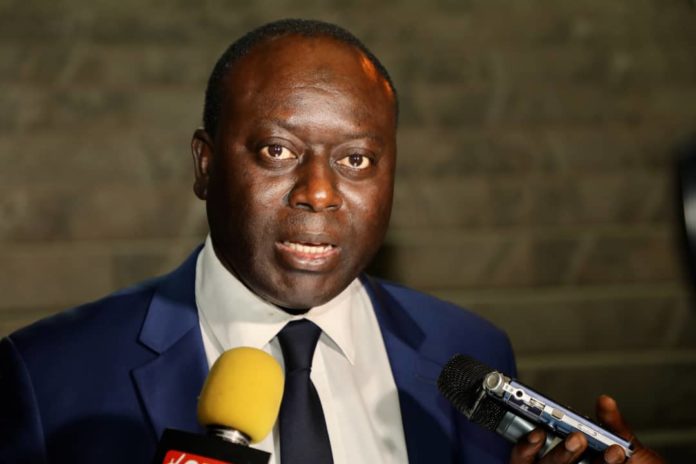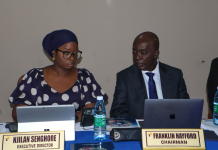By: Sana Camara
State House, 25th April, 2019 – A new Cabinet paper on the Gambia’s National Investment Policy (2019 – 2024) is seeking to promote industrialisation and value addition has been discussed and approved by the Cabinet today, Thursday, April 25, 2019.
Presented by the Minister of Trade, Industry, Regional Integration and Employment, the policy is an updated version of the current policy. It seeks to promote and facilitate investment that will grow the economy by creating a secure and rewarding employment for its population and produce good returns for investors.
The resolution of today’s cabinet meeting was read by Mr. Ebrima Sillah, the Minister of Information after eight hours of deliberations Presided over by His Excellency, President Adama Barrow at the State House.
The policy, among other things, is aimed at the increasing The Gambia’s export through the production of diverse goods and services, as well as opening up to foreign markets, increase public investment, particularly in infrastructural development and develop complementary infrastructure requirements (electricity, roads, bridges, sea and airport) to support business growth and development.
It will rebrand the image of The Gambia with specific investment promotion activities and improvement in the ‘Ease of Doing Business’ index by streamlining and removing unnecessary bottlenecks in public service delivery.
According to Minister Sillah, the Cabinet also deliberated on another paper on the Updated Gambia Trade Policy and Trade Policy Action Plan (2018 – 2022).
“The initiative to update the Trade Policy is necessitated by the many new developments that have taken place since 2011 both at the national and regional levels,” he said.
The updated Trade Policy provides direction for the implementation of the government’s trade agenda. It is designed to improve and maintain a competitive trading environment aimed at enhancing domestic production and improving export performance through value chain development.
The overall goal of the Policy is to make The Gambia a competitive, investment and export-oriented economy led by the private sector growth, Sillah added.
EDITOR’S NOTE
Mr Minister, the Banjul Breweries management is complaining that after raising taxes from 10 percent to 75 percent they can no longer pay their overheads and would have to retrench their workers and would eventually have to close down if there is no reversal of the increase. Has the government gone around to review the state of affairs of the existing manufacturing houses in the country and identify their challenges before coming up with this new investment policy to promote Gambia’s industrialisation? If one cannot preserve what exists how can one build new industries? Foroyaa will reach out to the Minister to get an answer.



















